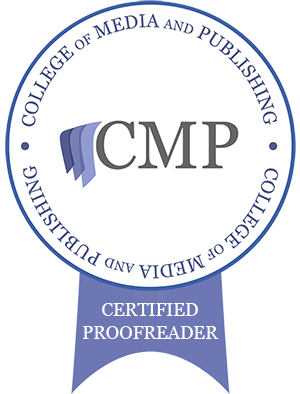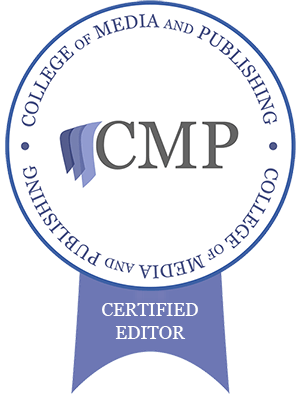
Why You Still Need a Dictionary
Word choice matters. English is a complex language with a lot of options for word choice. No matter how good you think your English is, it is important to be selective in your word choices. You need to make sure you are saying what you think you are saying. Some words which are used interchangeably when they shouldn’t be, as the meaning might be similar but not quite the same.
You might think people will know what you mean, but that’s not always the case. Someone reading might know what the word you have used means and realise it is incorrect. It is also possible for someone whose first language is not English to get confused if you use a word that’s not quite correct. Let’s look at a few examples.
Words You Should Check in the Dictionary Before Using
- Venomous and Poisonous: both of these words are related to toxins but there’s a difference in how they work. Toxins are substances that have a detrimental effect on the body. Venom is where the toxin is injected into the body by a fang, a tooth, a stinger or claw. Poison is a toxin that affects the body when it is ingested. Some things can be both.
- Psychologist and Psychiatrist: Both are professionals who deal with psychological problems and mental health, however, a psychiatrist is a medical doctor who has specialised and is able to prescribe medication as well as diagnose. Psychologists are scientists who have studied psychology and are able to assess and provide therapy but cannot prescribe.
- Complement and Compliment: these words sound the same and have a positive meaning but they are slightly different. Compliment is when you make a positive comment about something: “Your t-shirt is awesome!”. Complement means something that enhances or emphasizes the quality of something: “This wine is the perfect complement for a steak dinner.”
Deciding which word to use
When it comes to choosing the right word, it can be tricky. If in doubt, double check with a dictionary. Look up the word you want to use and check that the definition fits with what you are trying to say. Keep in mind the purpose of what you are writing, and you can be sure you are saying what you want to say. There is no shame in having to look things up to double check. Even the most professional and experienced writers cannot possibly remember every single word and meaning right off the bat. Word choice can affect how your writing is interpreted, so you want to make sure it has your desired effect. (See what I did there, another example! ‘Affect’ is a verb, ‘Effect’ is a noun.)
Synonyms
Sometimes word choice is a stylistic choice. There are a lot of words in English that have a large number of synonyms, words that have a similar meaning. Some words can have a few different but related meanings as well, so you might find a synonym that makes things clearer for your reader. Let’s look at an example, and take the word ‘good’.
Meanings of the word ‘good’
- of a high standard or the required qualities
- skilled at doing a specific thing
- healthy, strong or well
- useful or beneficial in effect
- appropriate to a purpose
- having moral virtue
- showing kindness
- obeys rules or conventions
- enjoyable or satisfying
- smart clothes suitable for formal wear
- noun for that which is morally right
- noun for a benefit or advantage
A long list, isn’t it? That’s why I chose this as an example, ‘good’ is a word that has a lot of different meanings and uses. It’s also a word that is used a lot in many forms of writing, particularly fiction, articles about people and marketing. You can’t really sell a product if you can’t show what is so good about it, right?
What synonyms should we consider?
Obviously we have a lot of potential meanings for the word ‘good’, and depending on the context, we might want to choose a different word to make the sentence more accurate or more interesting. So, the first part is to establish what context we are using this word. So let’s say we are writing about my writing skills.
“Emma’s a very good writer.”
Not bad, but could we make it better? The context here is talking about a skill I have, that is also of high quality so we could choose a synonym that fits with this. so here’s a few alternatives:
- Emma’s writing is of a high standard.
- Emma’s a superb writer.
- Emma’s writing is wonderful.
- Emma is an accomplished writer.
- Emma is a talented writer.
- Emma’s an expert writer.
However, you might find other synonyms that don’t work so well.
- Emma’s writing is nutritious. (You can’t really eat my words.)
- Emma’s writing is obedient. (I follow the rules, but this sounds odd.)
It is important to remember your context when making choices about words to use and synonyms. I would caution against using a thesaurus too much, you can overdo it and end up with something ridiculous like: “Emma’s manuscription is surpassing excellence.” It says the same thing but it’s a bit pompous and confusing. Using lots of long and obscure words will make your writing less accessible, especially in something less formal than academic writing. It doesn’t always make you look more intelligent and it can make your writing more difficult for people who are dyslexic or who have English as a second language. You don’t want to be sending your reader to use the dictionary all the time.
In Summary
The key takeaway from this is to make sure you are using the right word for the job. If in doubt look it up in the dictionary to make sure. Remember, if it bites you and you die, it’s venomous, but if you bite it and you die, it’s poisonous! See you next time!




Leave a Reply